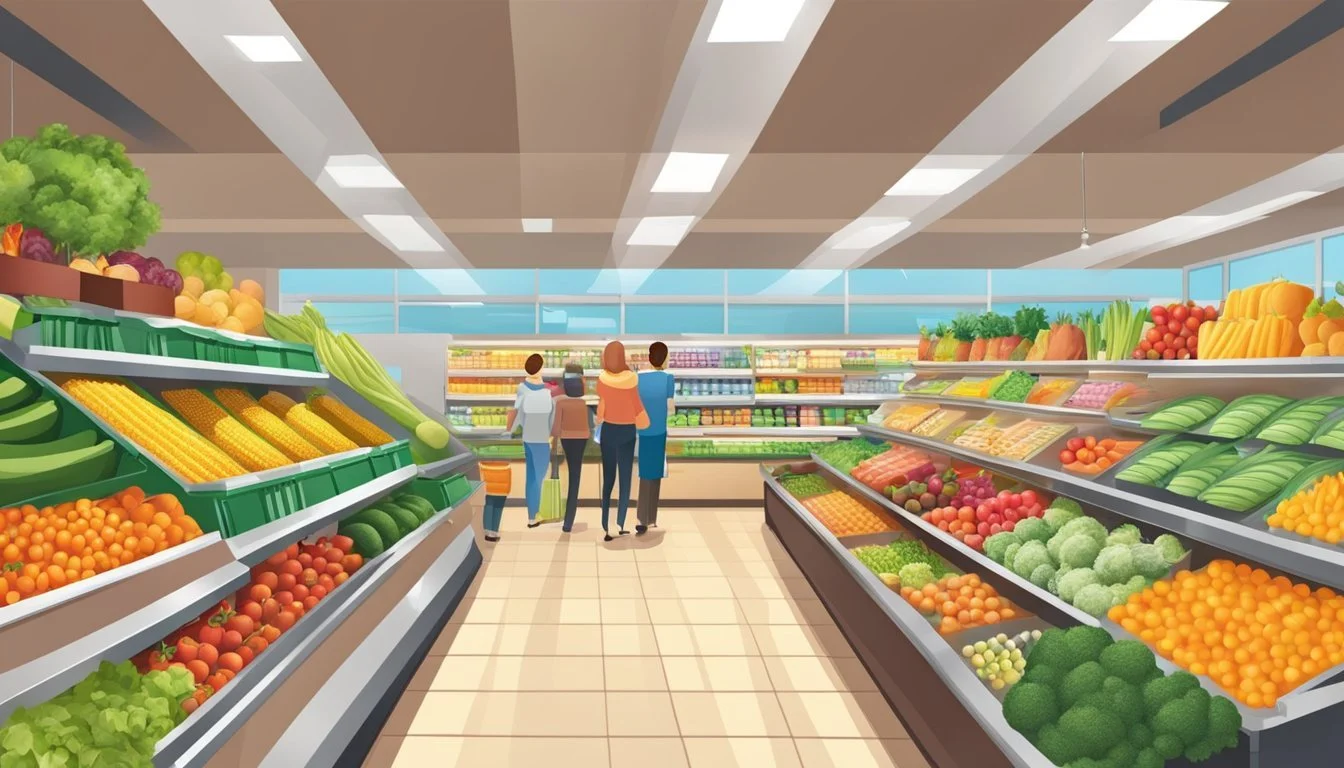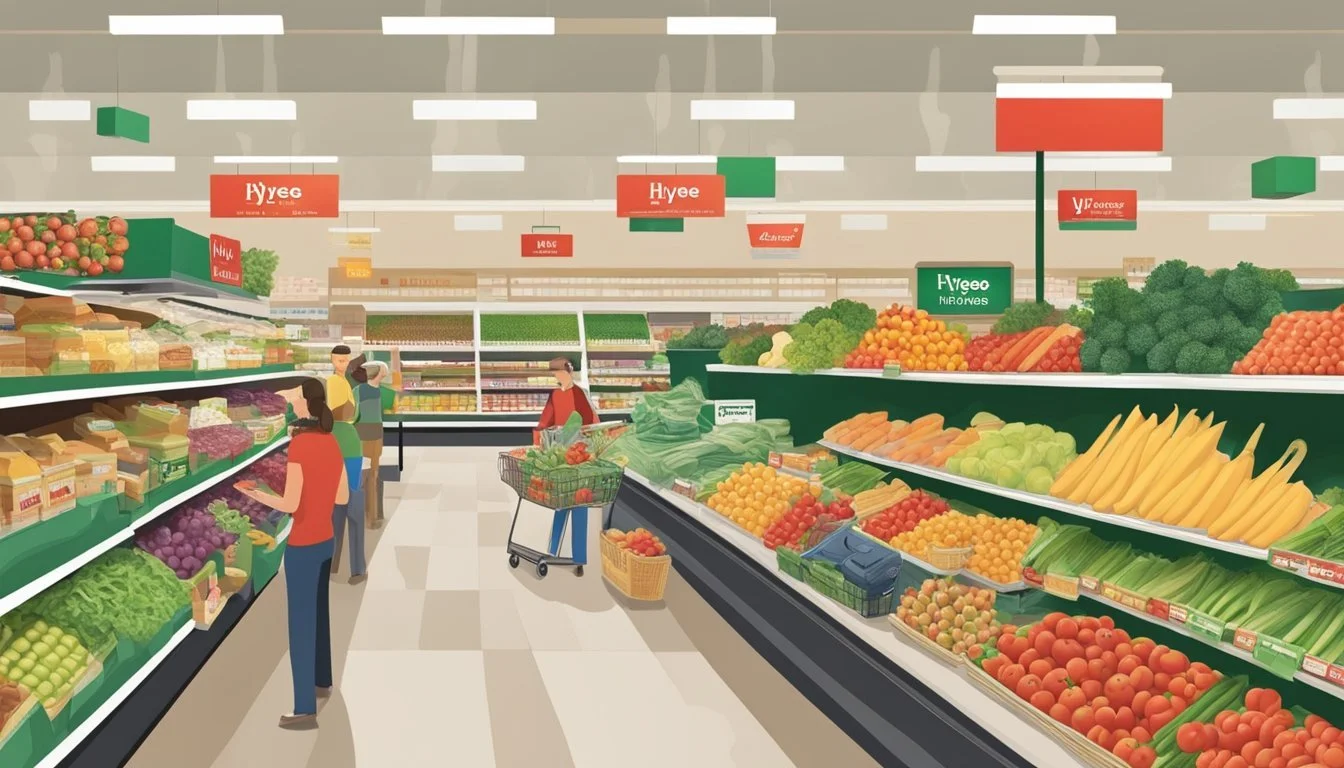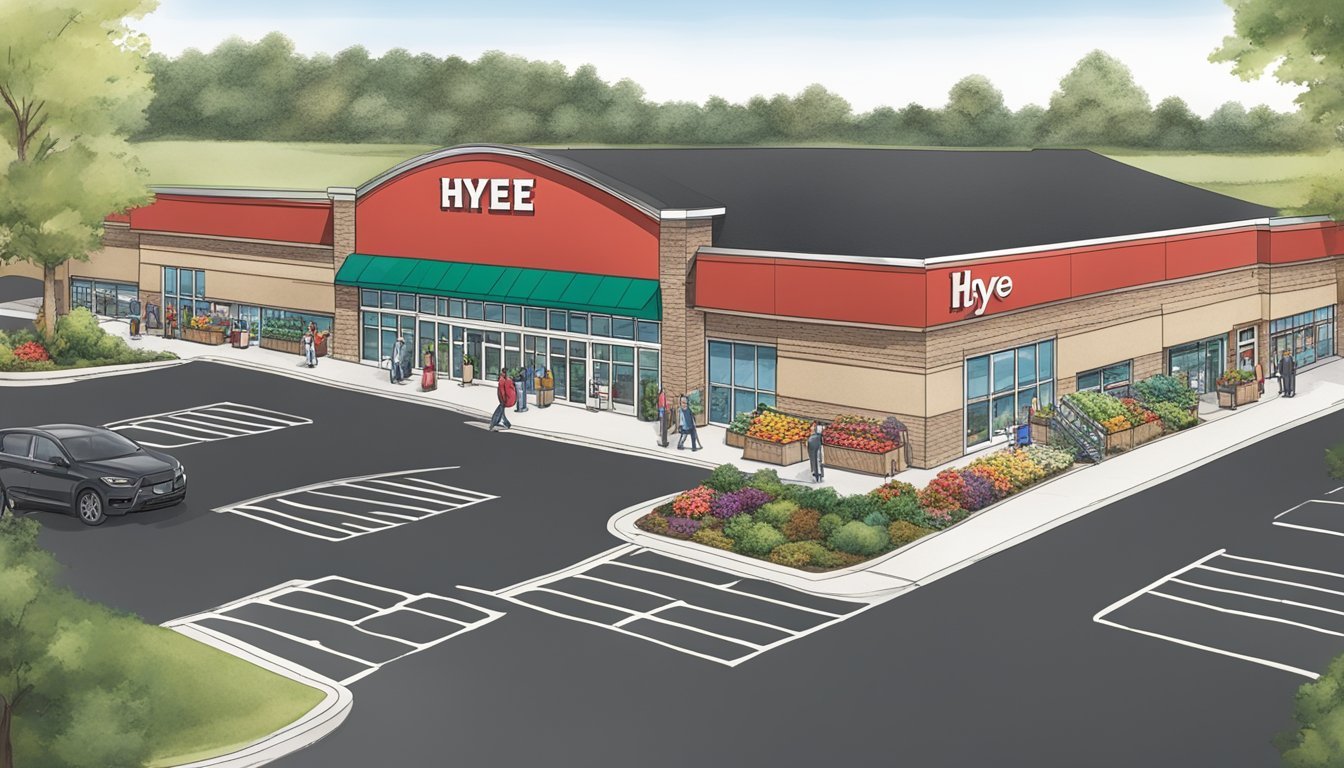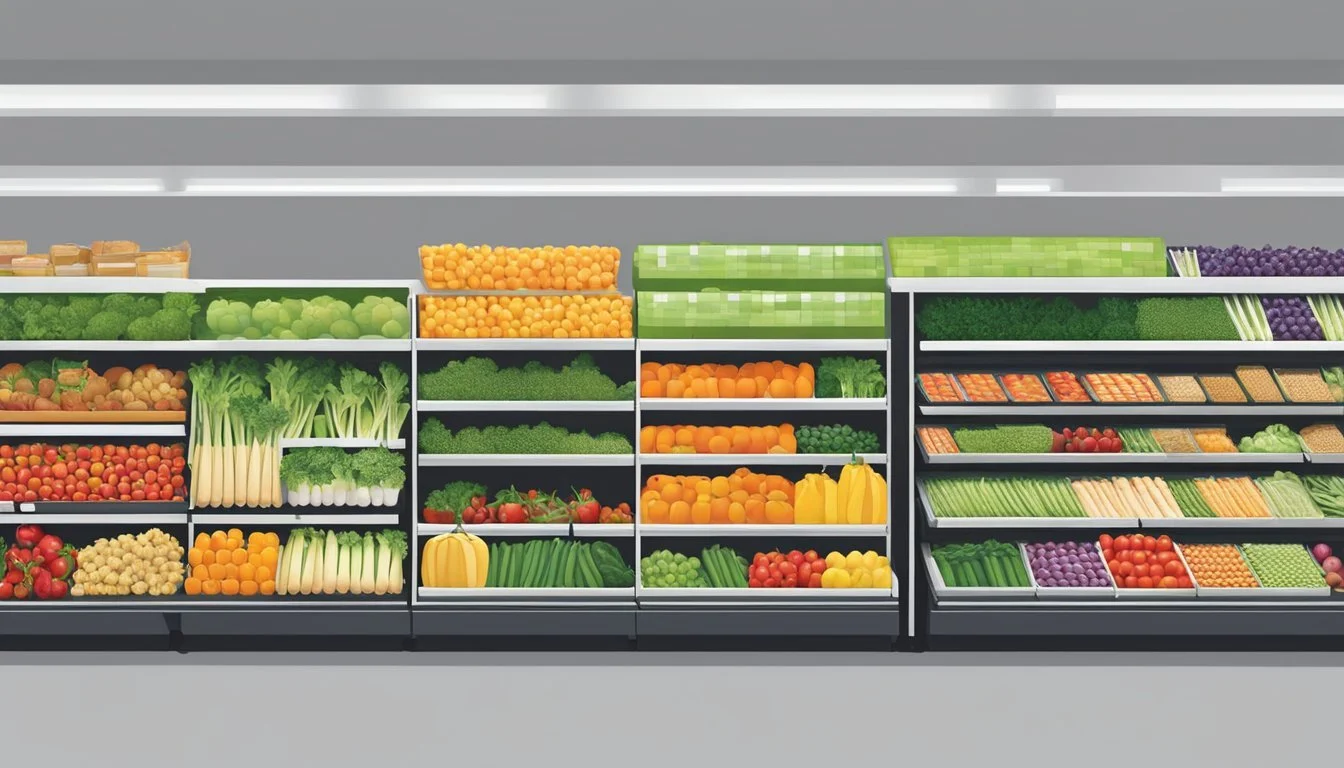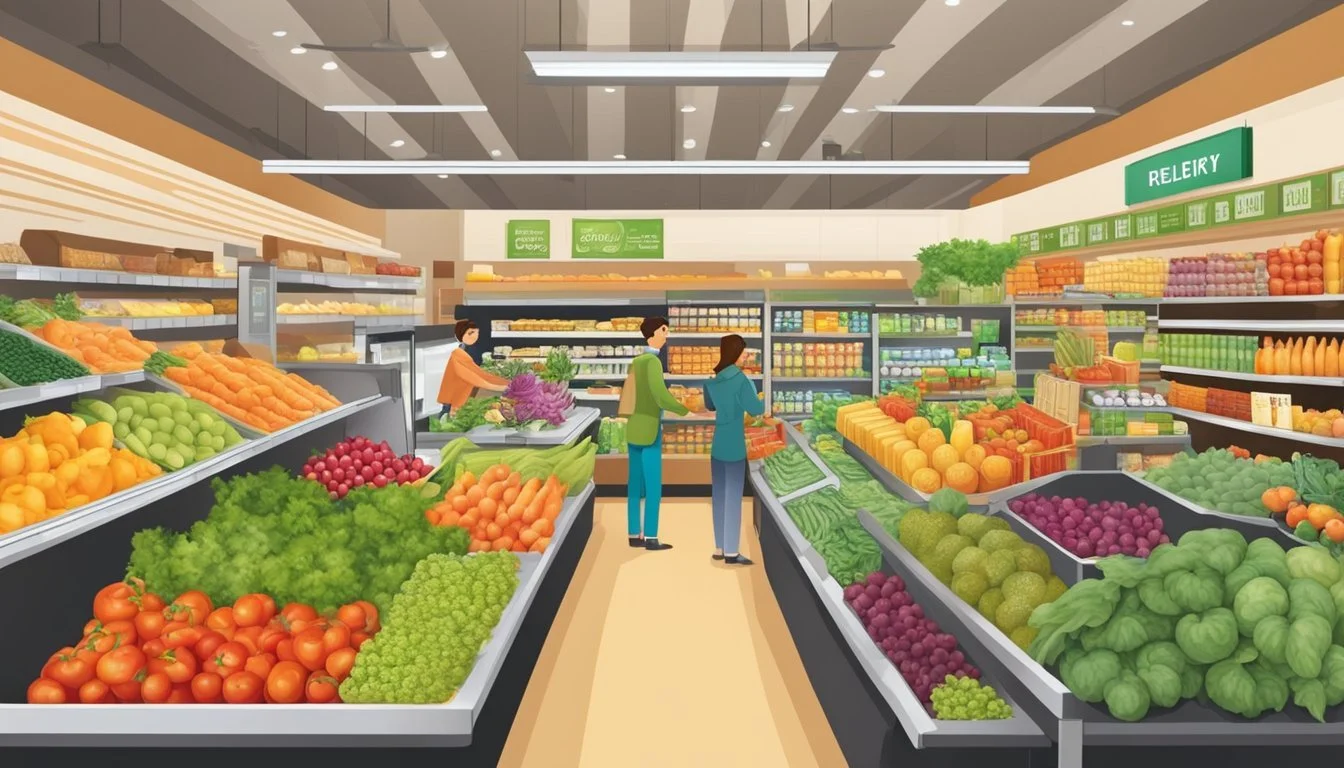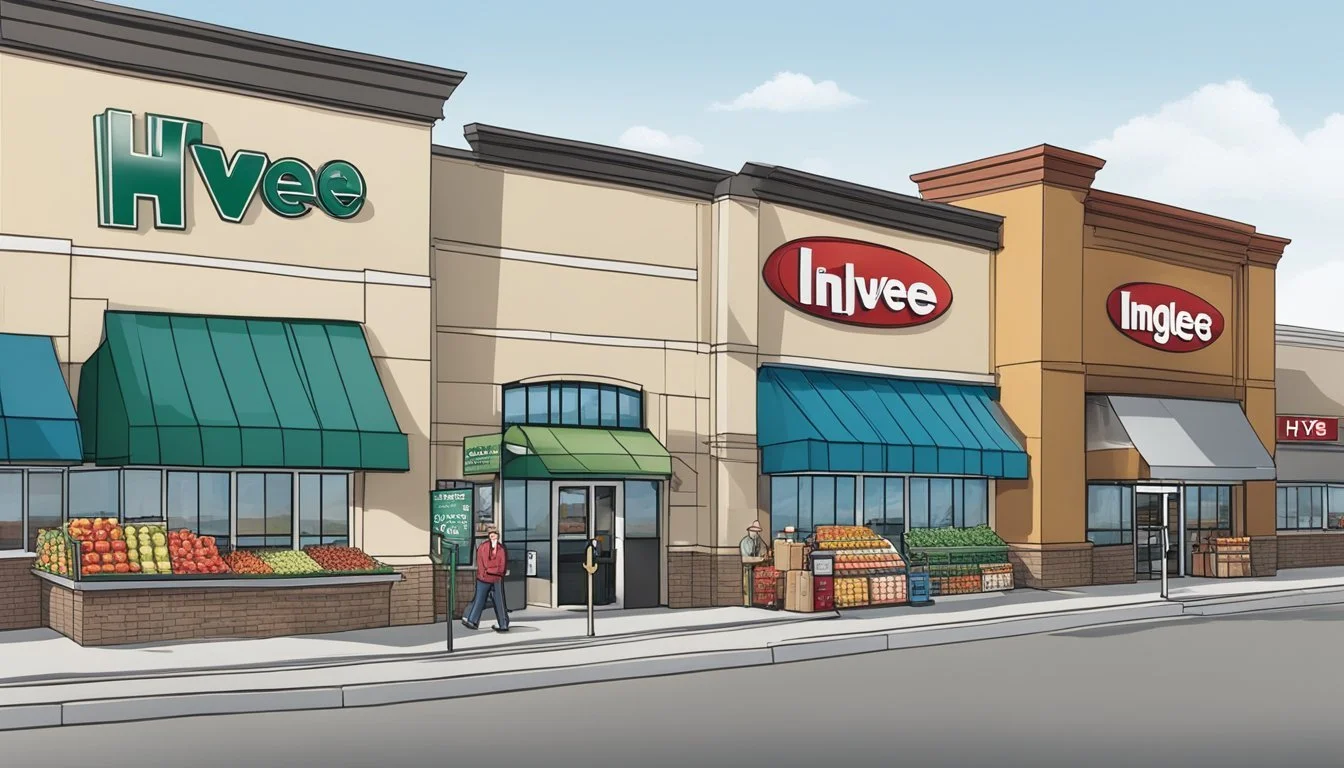Hy-Vee vs Ingles Markets
A Comprehensive Comparison of Price, Quality, and Selection
Grocery shopping is a regular part of life for most Americans, and choosing the right store can significantly impact both budget and satisfaction. Hy-Vee and Ingles Markets are two regional supermarket chains that cater to different parts of the country, each with its own strengths and weaknesses.
Hy-Vee, headquartered in Iowa, operates over 280 stores across eight Midwestern states. The chain is known for its diverse offerings, including in-store restaurants, pharmacies, and a wide selection of prepared foods. Hy-Vee excels in cake decorating and offers a variety of sponge types, including carrot and strawberry, making it a top choice for special occasions.
Ingles Markets, on the other hand, is primarily found in the Southeastern United States, with over 200 stores across six states. This chain focuses on providing fresh, local produce and maintaining competitive prices. While not as widely recognized as Hy-Vee, Ingles Markets has built a loyal customer base in its operating regions.
Company Background
Hy-Vee and Ingles Markets are two prominent American grocery chains with distinct histories and regional focuses. Both companies have deep roots in family ownership and community involvement.
Hy-Vee: Company Overview
Hy-Vee was founded in 1930 in Beaconsfield, Iowa, by Charles Hyde and David Vredenburg. The name "Hy-Vee" combines the founders' surnames. It began as a small general store and has grown into a major Midwestern supermarket chain.
Hy-Vee operates over 280 stores across eight states, primarily in Iowa, Illinois, Kansas, Minnesota, Missouri, Nebraska, South Dakota, and Wisconsin. The company is employee-owned and known for its customer service and community engagement.
In 1982, Hy-Vee expanded its operations by creating Perishable Distributors of Iowa to supply fresh meat and seafood. The company has also developed several alternative store formats, including convenience stores and dollar stores, to serve diverse community needs.
Ingles Markets: Company Overview
Ingles Markets was founded in 1963 by Robert Ingle in Asheville, North Carolina. The company started with a single supermarket and has since expanded to become a prominent grocery chain in the Southeastern United States.
Ingles operates over 200 supermarkets across six states: North Carolina, South Carolina, Georgia, Tennessee, Alabama, and Virginia. The company remains family-controlled, with Robert Ingle's son Robert Ingle II serving as CEO.
Ingles Markets is known for its focus on fresh produce and local products. The company operates its own milk processing and packaging plant, ensuring a steady supply of dairy products to its stores. Ingles has also invested in fuel centers and pharmacies within its supermarkets to provide additional services to customers.
Store Presence and Expansion
Hy-Vee and Ingles Markets have distinct geographic footprints in the United States. Both chains focus on regional expansion strategies to strengthen their market positions.
Hy-Vee's Geographic Reach
Hy-Vee operates 285 stores across eight Midwestern states. Its strongest presence is in Iowa, where it holds a 65% share of grocery visits. The chain also has a significant footprint in Nebraska (41% share) and South Dakota (58% share).
Hy-Vee has been expanding beyond its traditional Midwest base. The company has introduced five alternative store formats to enter new markets where full-size supermarkets may not be feasible. These include convenience stores, dollar formats, and alcohol outlets.
Recent expansion efforts have seen Hy-Vee push into new territories outside the Midwest. This strategy aims to establish Hy-Vee as a major player in the broader American grocery market.
Ingles Markets' Geographic Reach
Ingles Markets primarily serves the Southeastern United States. The chain operates over 200 supermarkets across six states: North Carolina, South Carolina, Georgia, Tennessee, Alabama, and Virginia.
North Carolina hosts the largest number of Ingles stores, with a particularly strong presence in the western part of the state. The company's headquarters is located in Black Mountain, North Carolina.
Ingles Markets has focused on rural and suburban areas, often establishing itself in communities underserved by larger national chains. This strategy has allowed Ingles to build a loyal customer base in its regional stronghold.
Product Range and Quality
Hy-Vee and Ingles Markets both offer diverse product ranges to meet customer needs. Their selections vary in quality, variety, and specialty offerings, impacting shoppers' experiences and choices.
Quality and Selection of Produce
Hy-Vee prides itself on a wide array of fresh produce. The store often sources from local farms when possible, ensuring freshness and supporting regional agriculture. Their produce sections typically feature vibrant displays with a mix of conventional and organic options.
Ingles Markets also emphasizes quality produce. They stock seasonal fruits and vegetables, with a focus on items grown in the southeastern United States. The chain's "Taste of the Backyard" program highlights locally-sourced produce when available.
Both stores maintain high standards for their produce, but Hy-Vee generally offers a larger selection, particularly in their larger format stores.
Organic and Specialty Offerings
Hy-Vee has made significant strides in expanding its organic and specialty food options. Many locations feature dedicated health market sections with a broad range of organic, gluten-free, and specialty diet products. The store also carries international foods and gourmet items.
Ingles Markets provides organic options, though their selection may be more limited compared to Hy-Vee. They do offer a variety of specialty products, including a selection of international foods, particularly those popular in the southeastern U.S.
Hy-Vee generally outpaces Ingles in terms of organic and specialty product variety, especially in larger urban locations.
Private Label Products
Hy-Vee's private label offerings span a wide range of categories. Their main store brand, "Hy-Vee," covers everyday essentials at competitive prices. They also offer premium private labels like "Gustare Vita" for Italian foods and "Good Graces" for gluten-free products.
Ingles Markets features its "Laura Lynn" private label across various product categories. This brand aims to provide quality alternatives to national brands at lower prices. While comprehensive, Ingles' private label selection is generally smaller than Hy-Vee's.
Both chains prioritize quality in their store brands, but Hy-Vee offers a more extensive and diverse private label lineup.
Pricing and Savings Opportunities
Hy-Vee and Ingles Markets employ different pricing strategies and savings programs to attract and retain customers. Their approaches to everyday pricing and loyalty rewards can significantly impact shoppers' budgets.
Everyday Pricing Strategies
Hy-Vee's regular prices tend to be higher than some discount chains. The store focuses on providing quality products and services, which can lead to slightly elevated costs. Ingles Markets aims for competitive everyday pricing, often falling between discount stores and premium grocers.
Both chains offer store-brand alternatives that provide savings compared to national brands. Hy-Vee's private label includes over 24,000 items across various price points. Ingles' Laura Lynn brand covers a wide range of products at lower prices.
Weekly sales and promotions play a crucial role in both stores' pricing strategies. Shoppers who plan meals around these deals can realize significant savings.
Discounts and Loyalty Programs
Hy-Vee's Fuel Saver + Perks program allows customers to earn points on purchases, redeemable for discounts on gas or groceries. The program also provides personalized deals based on shopping habits.
Ingles Advantage Card offers similar benefits, with fuel rewards and digital coupons. Cardholders receive additional savings on select items throughout the store.
Both chains provide digital coupons through their mobile apps, making it easy for tech-savvy shoppers to save. Hy-Vee offers a larger selection of digital deals compared to Ingles.
Senior discounts are available at both stores, typically offering 5% off on specific days. Military discounts are also provided, though terms may vary by location.
Shopping Experience
Hy-Vee and Ingles Markets offer distinct shopping experiences that impact customer satisfaction. Both chains prioritize key aspects of the grocery shopping process, but with different approaches and strengths.
Store Layout and Cleanliness
Hy-Vee stores typically feature a spacious, well-organized layout. Wide aisles and clear signage make navigation easy for shoppers. The chain emphasizes cleanliness, with regular maintenance schedules ensuring a hygienic environment.
Ingles Markets also maintains clean stores but often has a more compact layout. Their stores frequently incorporate local touches, reflecting the communities they serve. Both chains stock a wide variety of products, though Hy-Vee tends to offer more extensive specialty departments.
Produce sections in both stores are usually well-stocked and attractively displayed. Hy-Vee often includes more organic and locally-sourced options, while Ingles focuses on regional favorites.
Checkout Efficiency
Hy-Vee invests in technology to streamline the checkout process. Many locations offer self-checkout options and mobile payment systems. During peak hours, they typically open additional lanes to reduce wait times.
Ingles Markets maintains a more traditional approach to checkout. While they may have fewer high-tech options, they often compensate with well-trained staff who process transactions quickly and efficiently.
Both chains strive to keep lines moving, but Hy-Vee's technological edge can result in slightly faster service during busy periods.
Customer Service
Hy-Vee prides itself on its "helpful smile in every aisle" motto. Employees receive extensive training in customer service and product knowledge. They often go above and beyond to assist shoppers, offering to check stock or provide recipe suggestions.
Ingles Markets fosters a friendly, small-town atmosphere in its stores. Staff members are typically long-term employees who know their regular customers by name. This personal touch can create a warm, welcoming environment.
Both chains emphasize responsiveness to customer needs. Hy-Vee often provides more specialized services, such as in-store dietitians, while Ingles focuses on building strong community connections.
Community Presence and Consumer Trust
Hy-Vee and Ingles Markets have established strong connections within their respective communities. Both chains prioritize local engagement and work to build customer loyalty through various initiatives and programs.
Community Engagement
Hy-Vee actively participates in local events and sponsors youth sports teams. The company organizes food drives and partners with regional food banks to address hunger issues. Hy-Vee's employee volunteer program encourages staff to contribute their time to community causes.
Ingles Markets focuses on supporting local farmers and producers. The chain hosts farmers markets in store parking lots and prominently features regional products. Ingles also contributes to school fundraising efforts and sponsors community festivals.
Both companies emphasize hiring from within their service areas, providing job opportunities for local residents.
Brand Loyalty and Trust
Hy-Vee has cultivated a loyal following through its customer service and product quality. The chain consistently ranks high in customer satisfaction surveys. Hy-Vee's private label products have gained consumer trust for their value and quality.
Ingles Markets maintains strong brand loyalty in its Southeastern US territory. The company's long-standing presence in many communities has fostered generational customer relationships. Ingles' focus on competitive pricing and locally sourced items resonates with its customer base.
Recent consumer surveys indicate both chains enjoy above-average trust ratings compared to national competitors. Hy-Vee and Ingles' emphasis on community involvement contributes significantly to their positive brand perceptions.
Additional Services and Amenities
Hy-Vee and Ingles Markets offer a range of services beyond basic grocery shopping. These amenities aim to enhance customer convenience and provide additional value.
Prepared Foods and Deli Services
Hy-Vee's prepared food options are extensive. Their stores feature full-service delis with made-to-order sandwiches, salads, and hot meals. Many locations include in-store restaurants or food courts serving a variety of cuisines.
Ingles Markets also provides prepared food options, though typically on a smaller scale. Their delis offer rotisserie chickens, pre-made sandwiches, and salads. Some stores include hot food bars with daily specials.
Both chains emphasize freshness and quality in their prepared offerings. Hy-Vee tends to have more diverse options, while Ingles focuses on Southern-inspired comfort foods.
Online Shopping and Delivery Options
Hy-Vee has invested heavily in e-commerce. They offer Hy-Vee Aisles Online, allowing customers to shop via website or mobile app. Options include home delivery and curbside pickup at most locations.
Ingles Markets provides online shopping through Ingles Curbside. This service allows customers to place orders for pickup at select stores. Home delivery is available in limited areas through third-party partnerships.
Hy-Vee's online platform is more robust, with a wider service area and more features. Ingles' offering is functional but less comprehensive.
Industry Standing
Hy-Vee and Ingles Markets occupy distinct positions in the grocery industry, with varying regional influence and consumer perceptions. Both chains face competition from national retailers while maintaining loyal customer bases in their respective markets.
Comparison with National Chains
Hy-Vee operates primarily in the Midwest, competing against giants like Walmart and Kroger. With 285 stores, Hy-Vee's 2022 revenue reached $12 billion. Ingles Markets, focused in the Southeast, runs 197 stores. Both chains face challenges from national retailers' expansion and pricing strategies.
Hy-Vee ranks higher in industry listings, often appearing in top 10 U.S. grocery chains. Ingles Markets, while successful regionally, typically ranks lower nationally. Aldi's growth and Walmart's market share pose threats to both companies' market positions.
Consumer Perception and Reviews
Consumer Reports and other researchers consistently rank Hy-Vee among the top U.S. grocery stores for customer satisfaction. Shoppers praise Hy-Vee's product quality, customer service, and store cleanliness. The chain's focus on fresh produce and in-store dining options contributes to its positive image.
Ingles Markets receives mixed reviews from consumers. Some appreciate its local focus and community involvement. Others criticize product selection and prices compared to competitors like Publix. Both chains face increasing pressure from discount retailers like Aldi, which often score high in value-focused consumer surveys.
Hy-Vee's superior overall quality perception gives it an edge in industry standing. However, Ingles Markets maintains a strong regional presence despite national competition.
Sustainability and Ethical Practices
Hy-Vee demonstrates a strong commitment to sustainability, particularly in seafood sourcing. The company's Responsible Choice Seafood Initiative ranks second among major U.S. supermarket chains for sustainability efforts.
Hy-Vee sources 100% of its fresh and frozen seafood from environmentally responsible suppliers. This initiative aims to protect ocean resources and promote the well-being of customers, employees, communities, and the global environment.
The company has also adopted a Seafood Supplier Code of Conduct based on international standards and best practices. This code helps ensure ethical practices throughout their seafood supply chain.
Ingles Markets takes steps towards sustainability as well. They focus on green initiatives in their stores, products, and distribution systems.
Ingles works with manufacturers to develop more concentrated products, reducing shipping weight and costs. They also collaborate with vendors to minimize packaging size and materials.
Both stores offer organic produce options, catering to environmentally conscious consumers. However, Hy-Vee appears to have a more comprehensive and publicly recognized sustainability program, especially regarding seafood sourcing.
Neither company makes specific claims about ethical labor practices beyond their seafood supply chains. More information would be needed to fully compare their approaches to worker welfare and fair trade practices.
Conclusion: Assessing the Best Option
Hy-Vee and Ingles Markets both offer unique strengths to grocery shoppers. Hy-Vee excels in its wide product selection and commitment to customer service.
Ingles Markets stands out for its competitive pricing and focus on locally sourced products. Both chains maintain high standards for quality across their offerings.
When evaluating the best option, shoppers should consider their priorities. Those valuing variety and personalized service may prefer Hy-Vee.
Budget-conscious consumers or those emphasizing local goods might lean towards Ingles Markets. Store locations and convenience also play a crucial role in the decision.
Ultimately, the ideal choice depends on individual needs and preferences. Both Hy-Vee and Ingles Markets provide solid grocery shopping experiences tailored to their respective markets.
Shoppers are encouraged to visit both stores if possible. This hands-on approach allows for a direct comparison of prices, product quality, and overall shopping atmosphere.
By assessing these factors firsthand, customers can determine which retailer aligns best with their grocery needs and values.

